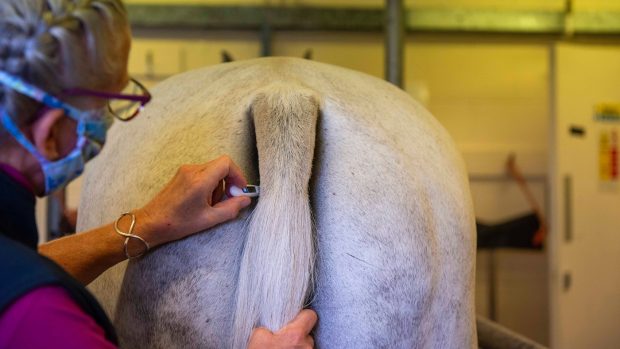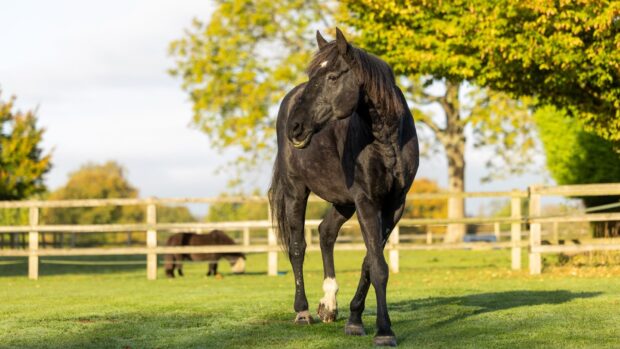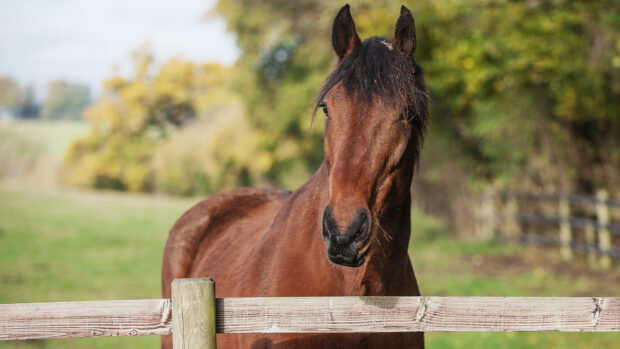A Shetland pony found abandoned with advanced strangles has made a full recovery after three months of being treated in complete isolation.
Vesta was rescued by residents in Buckinghamshire in July with the help of action group SAFE.
The piebald pony had abscesses bursting on her face and throat from the strangles as well as suffering from a severe case of ringworm.
“She was one of the worst cases of treatable disease we’ve ever seen,” said Jeanette Allen, chief executive of The Horse Trust.
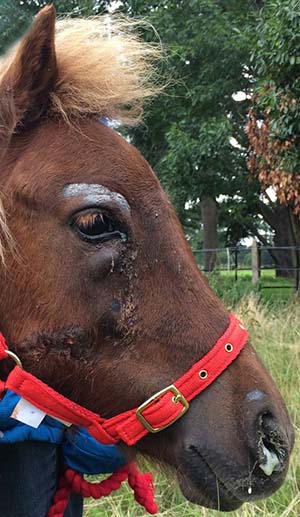 Vesta spent three weeks at the Royal Veterinary College (RVC) having the abscesses flushed several times a day.
Vesta spent three weeks at the Royal Veterinary College (RVC) having the abscesses flushed several times a day.
She was then kept in isolation at The Horse Trust’s centre in Buckinghamshire while vets made sure she wasn’t a carrier of the bacterium.
The first test was positive so Vesta needed to have her guttural pouch washed out again with a special antibacterial gel.
Further tests analysed by the Animal Health Trust still showed signs of infection so the process was repeated until a negative result was achieved.
In September Vesta got the first all clear test, this was still negative when repeated and new blood tests confirmed she was in the clear.
The treatment means she now has immunity to new infection for seven years.
Continued below…
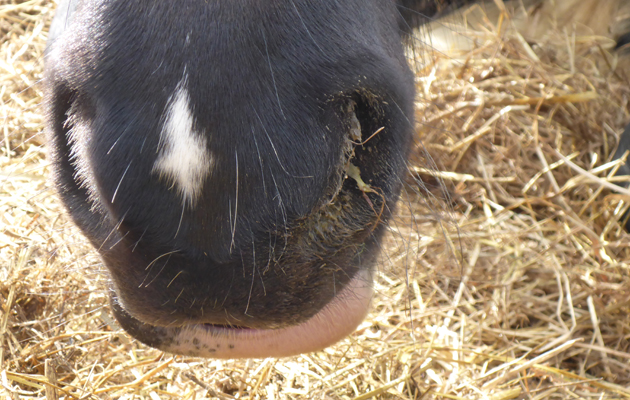
From horse to hoarse: how strangles has helped unravel sore throats
A technique developed by the Animal Health Trust in strangles research was used in a breakthrough by scientists looking at

Strangles kills hunter who survived 10 days stuck in a thicket
The hunter "assumed stolen" after going missing for 10 days and sparking a nationwide search last year, has died after
The pony, believed to be four to six years old, was turned out in November in a field with six of the charity’s 10-strong Shetland herd.
She will be settled in over the winter and is hoped to find a new home after being handled in the spring.
“Vesta is proof that strangles is treatable, manageable and there is no need for hysteria,” said Ms Allen.
None of the charity’s 130 other horses showed any signs of the disease while Vesta was being treated.
“Horses cannot get strangles by walking past a yard where there is an infected pony; it is not airborne,” said Ms Allen.
She said infection is passed by nose-to-nose contact, sharing water troughs, grazing and by people carrying the infection on their hands or clothing.
Riders are encouraged to avoid letting their horses nuzzle others at shows and livery yards are urged to ask for blood test from owners before new horses are brought in as a precaution.
For all the latest news analysis, competition reports, interviews, features and much more, don’t miss Horse & Hound magazine, on sale every Thursday

